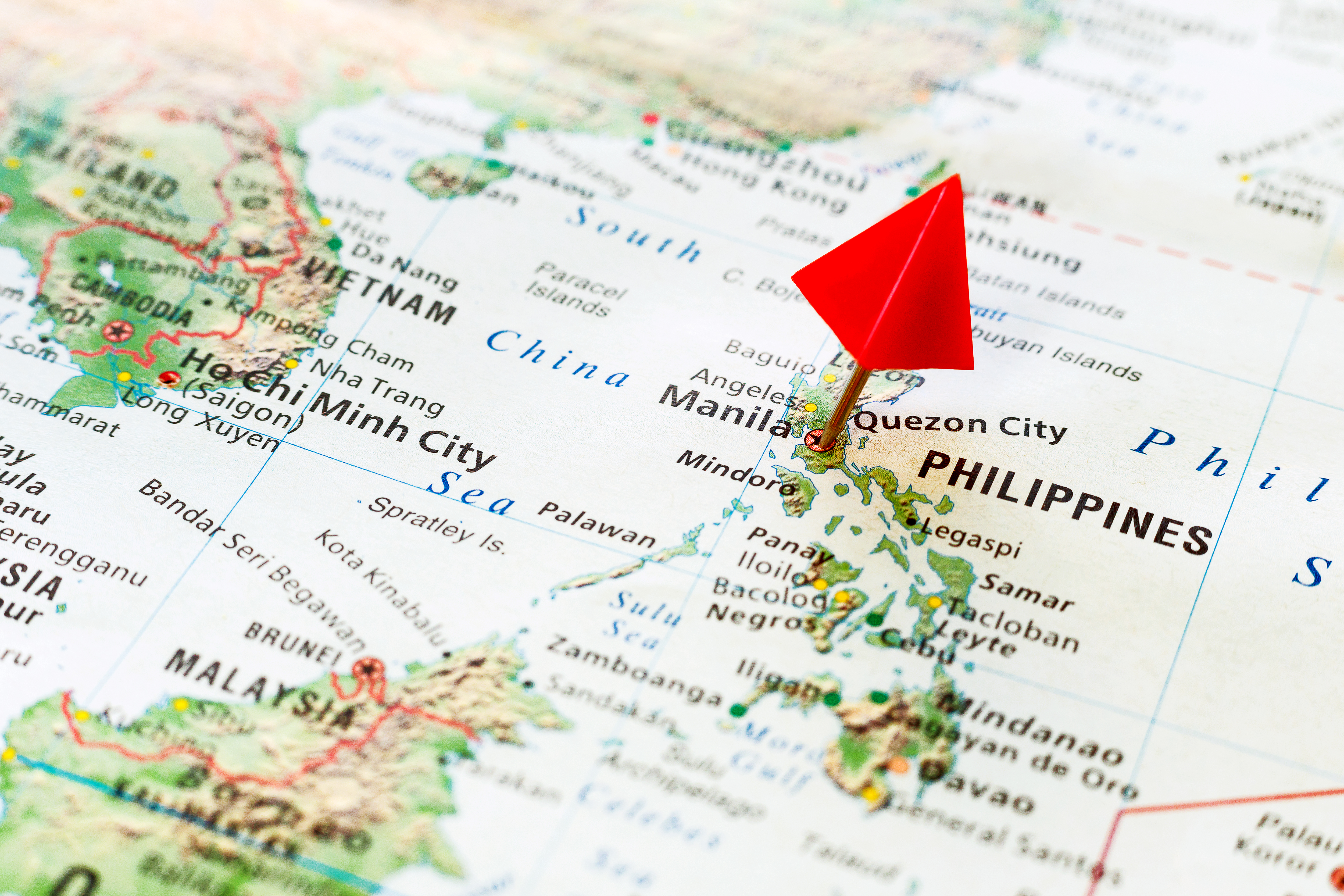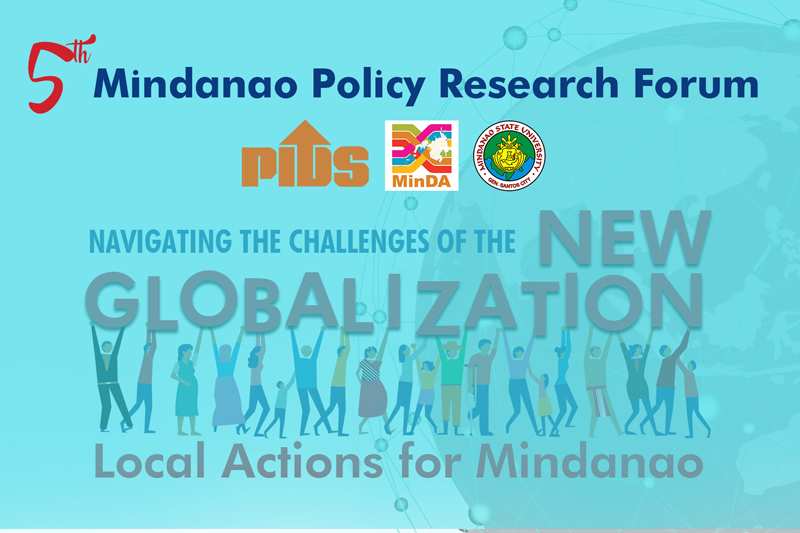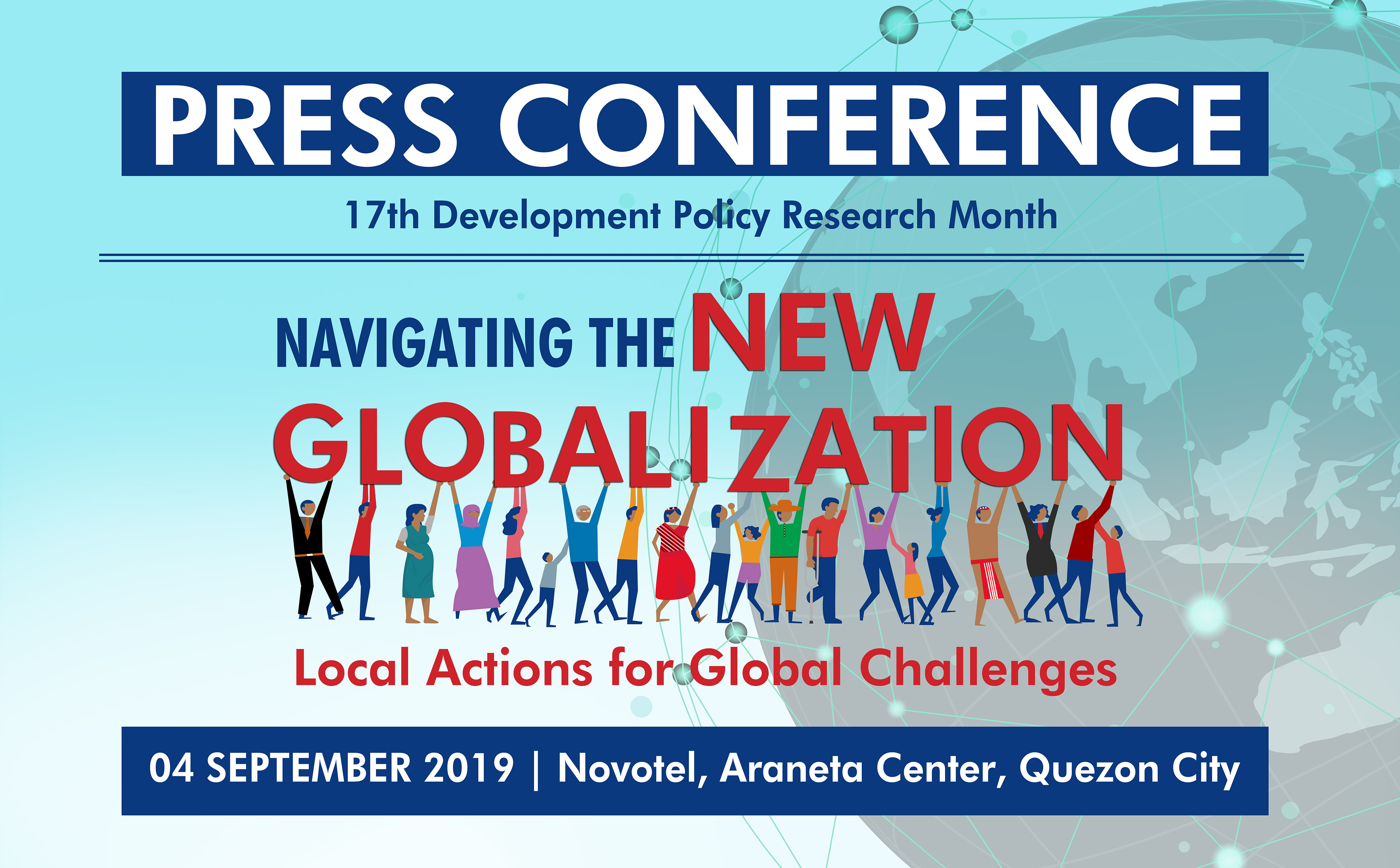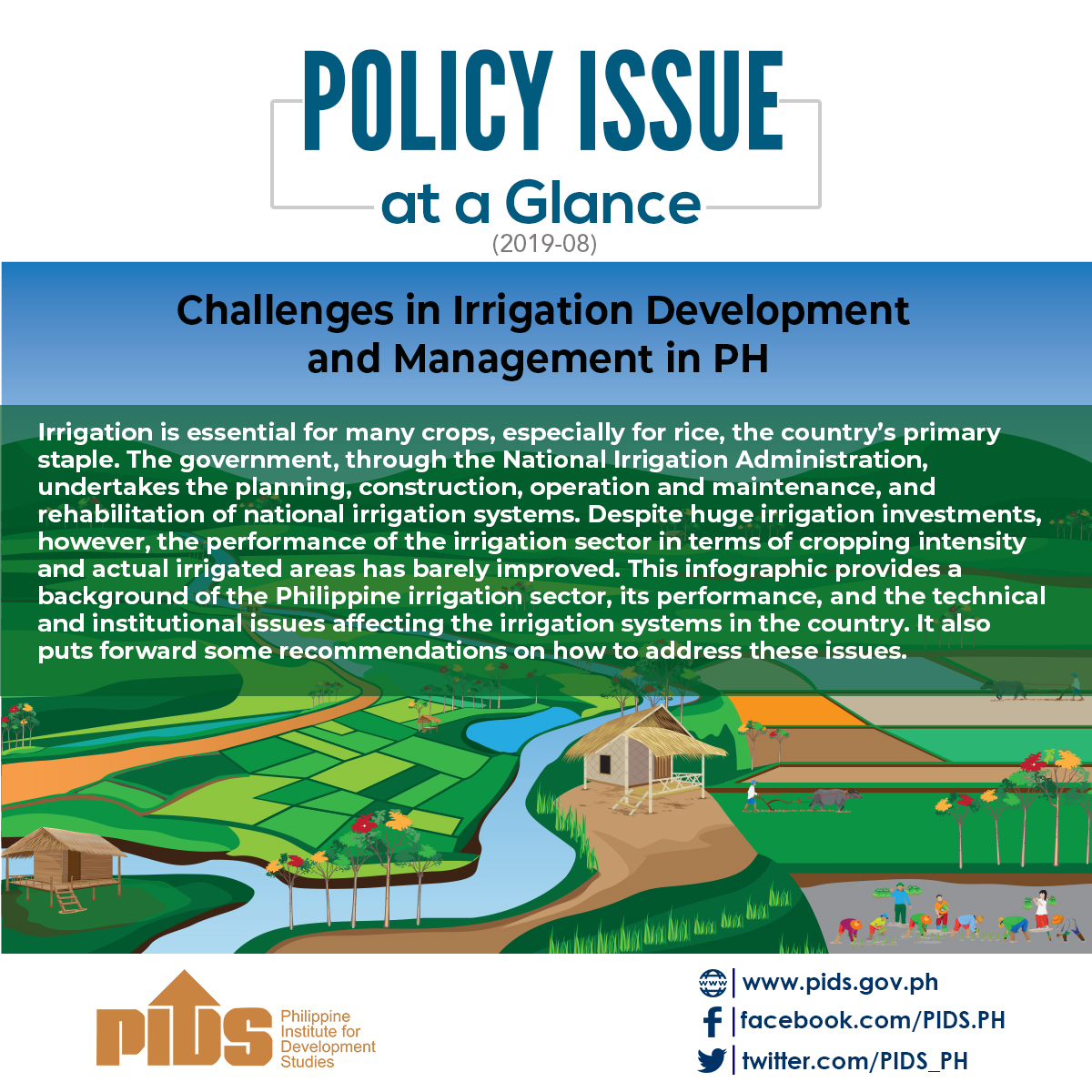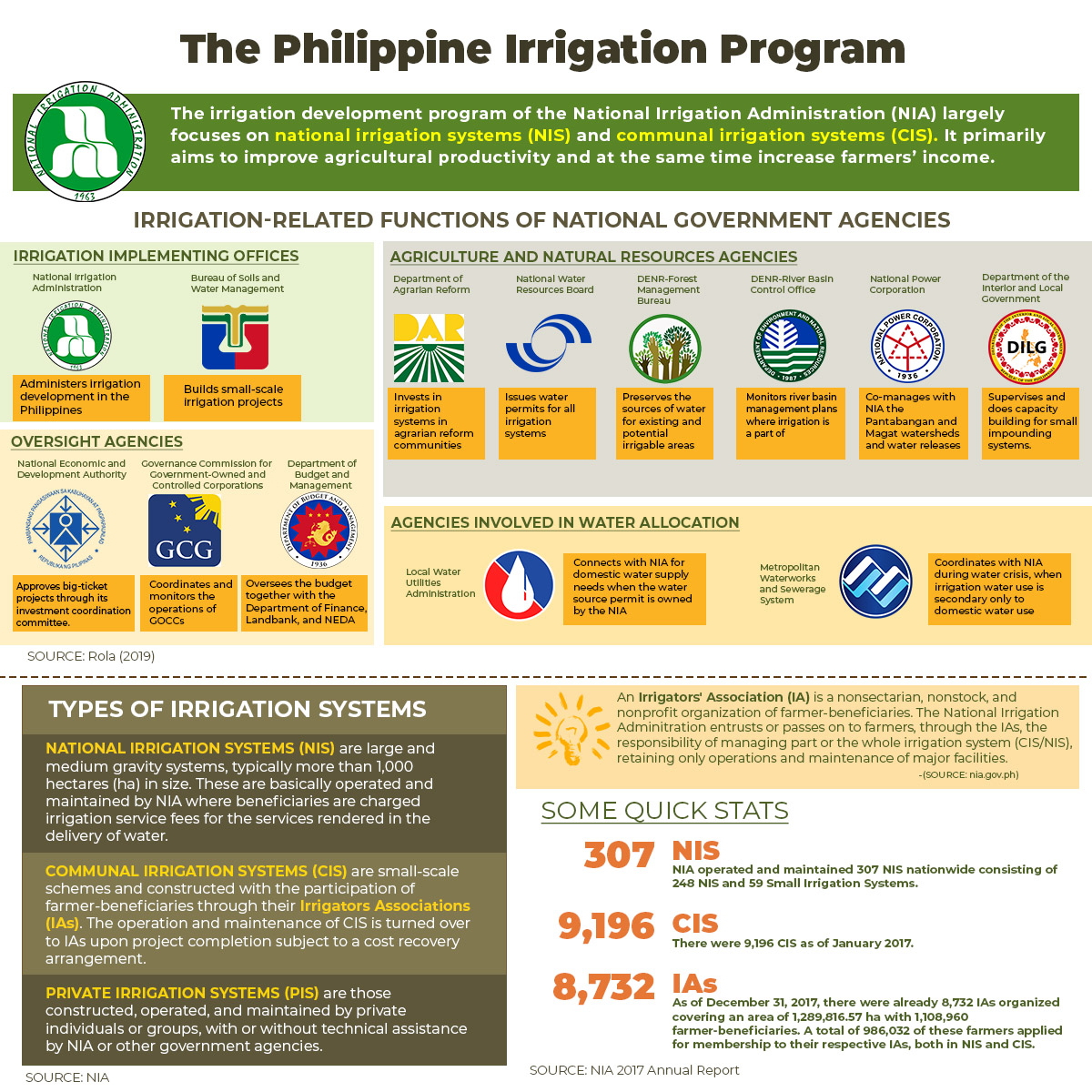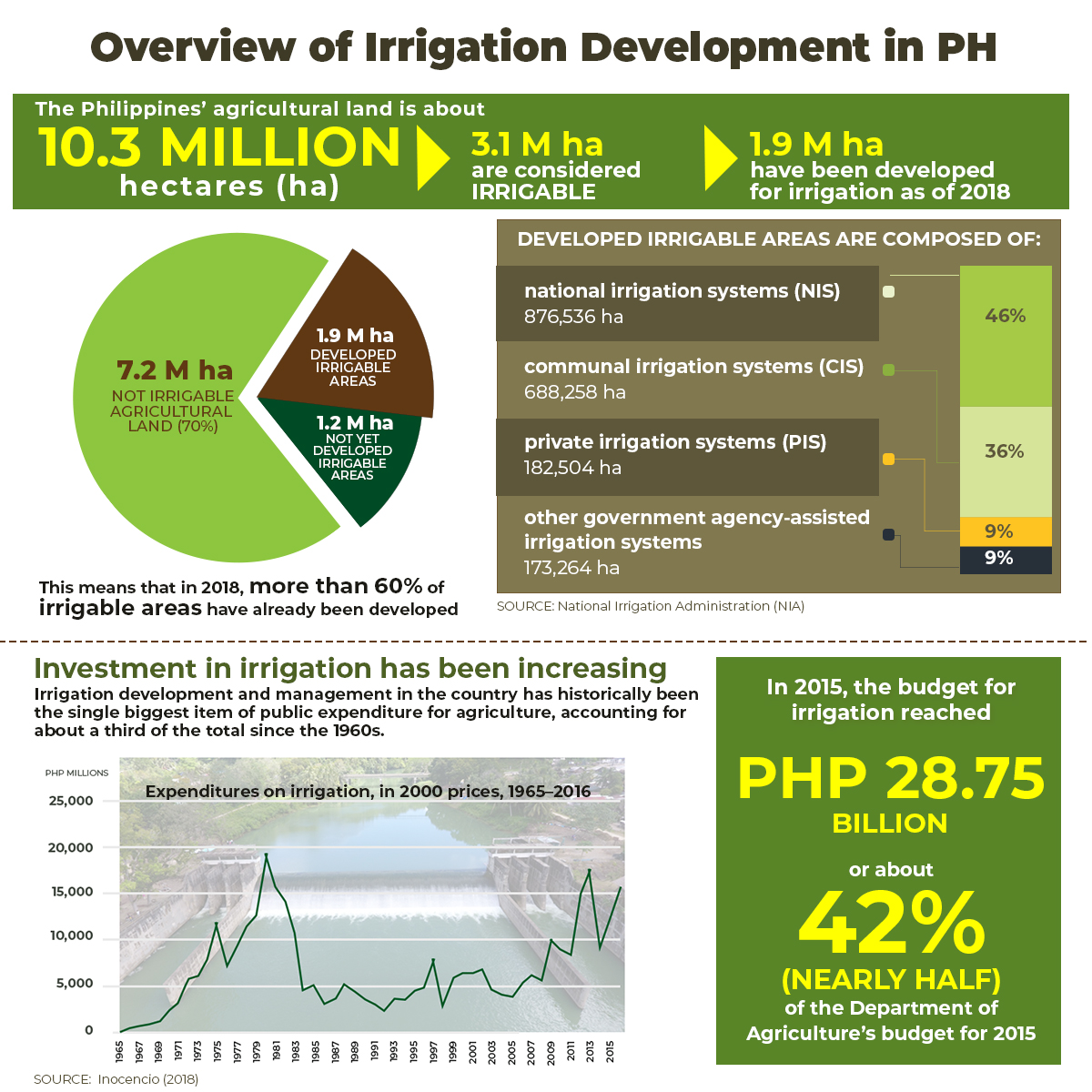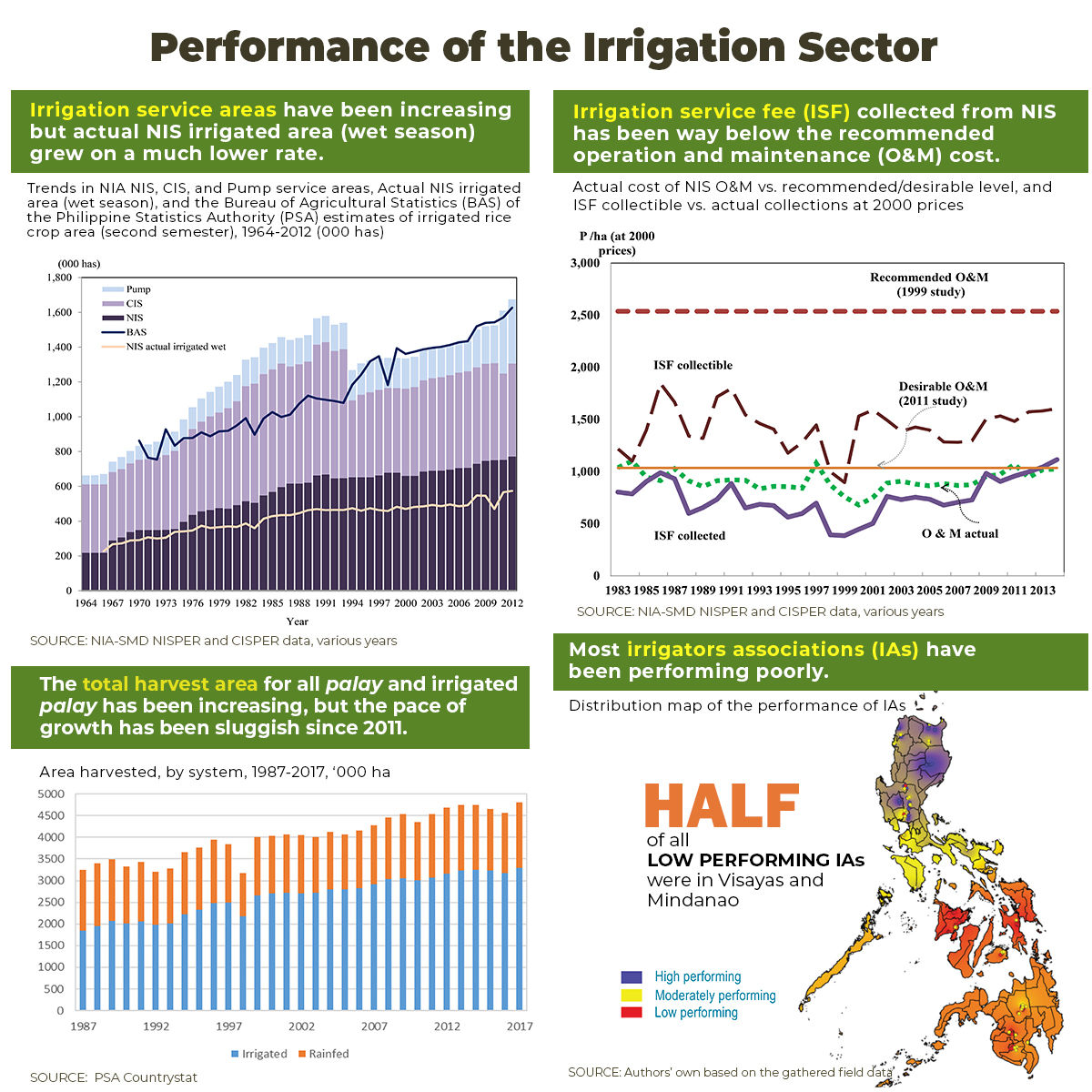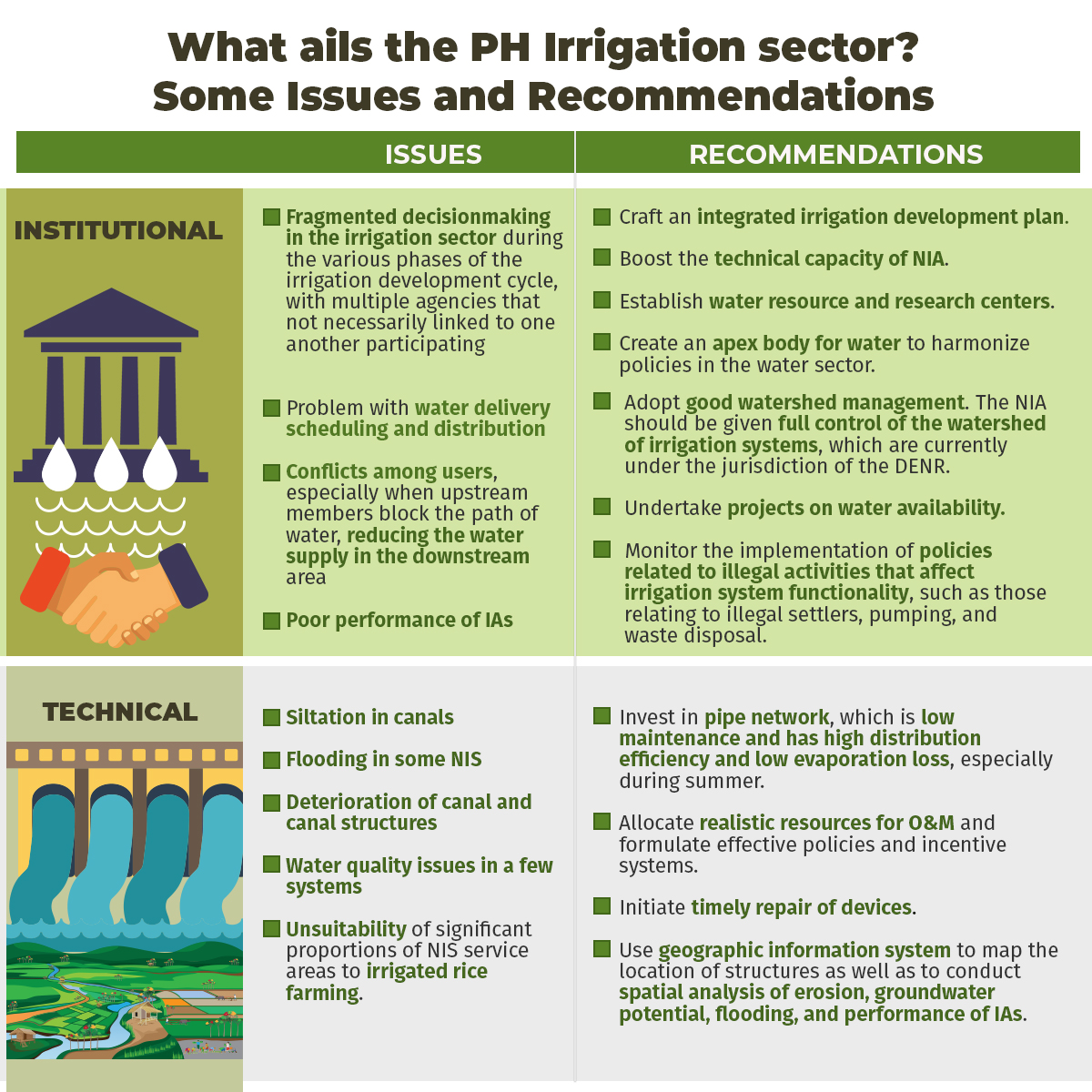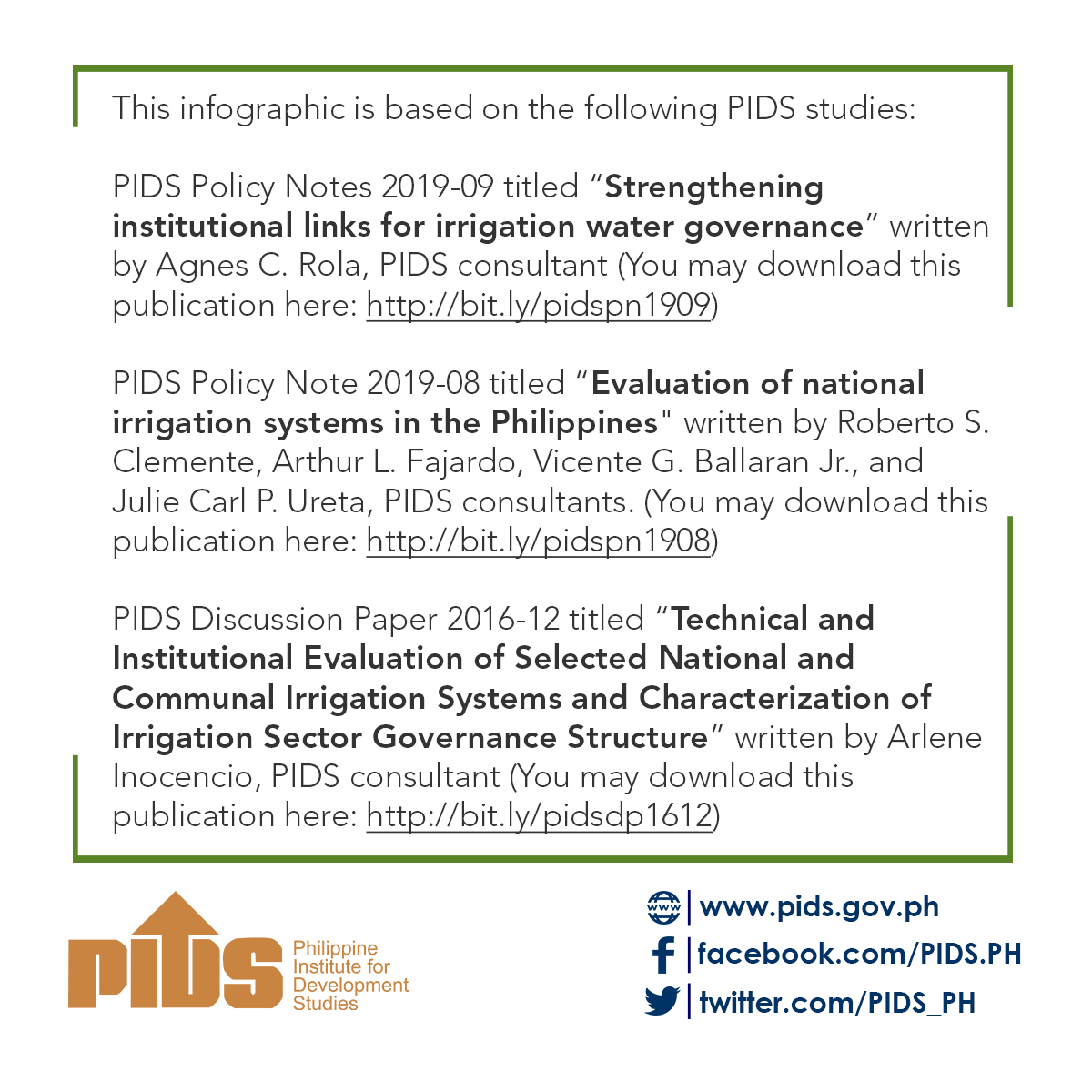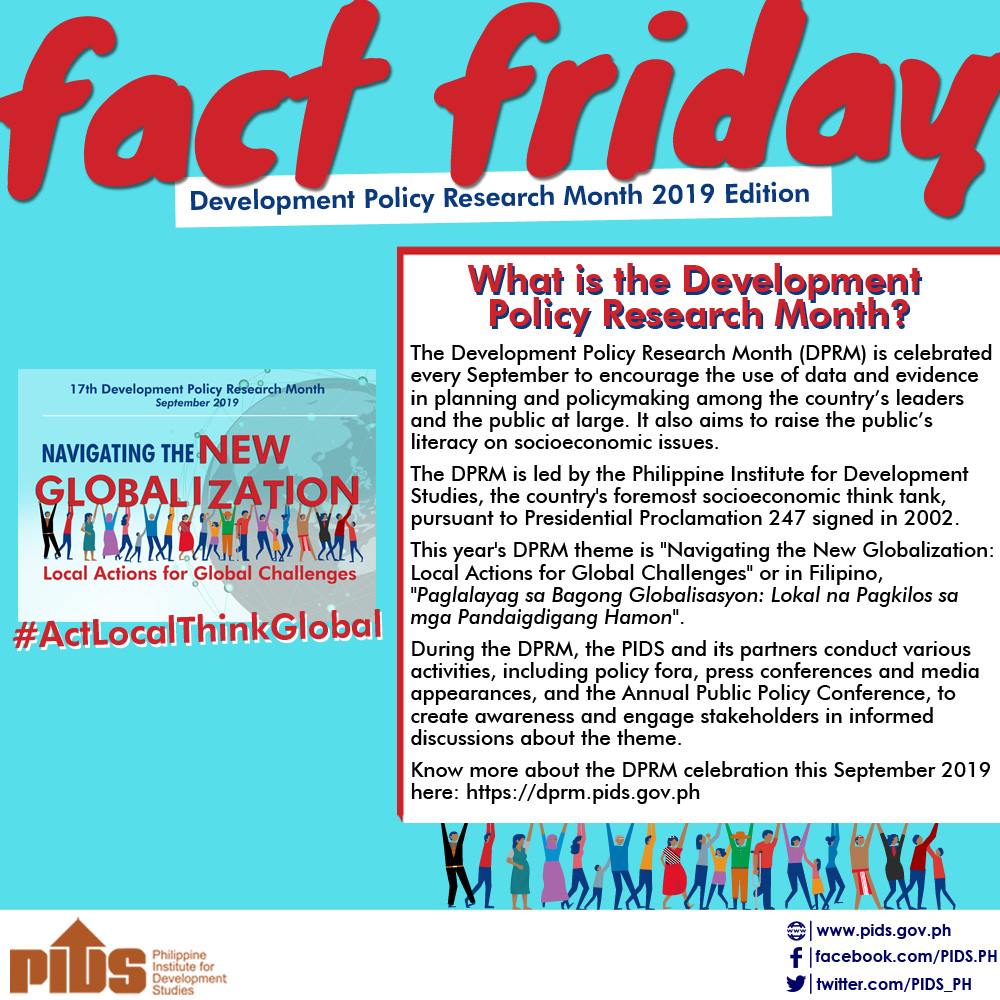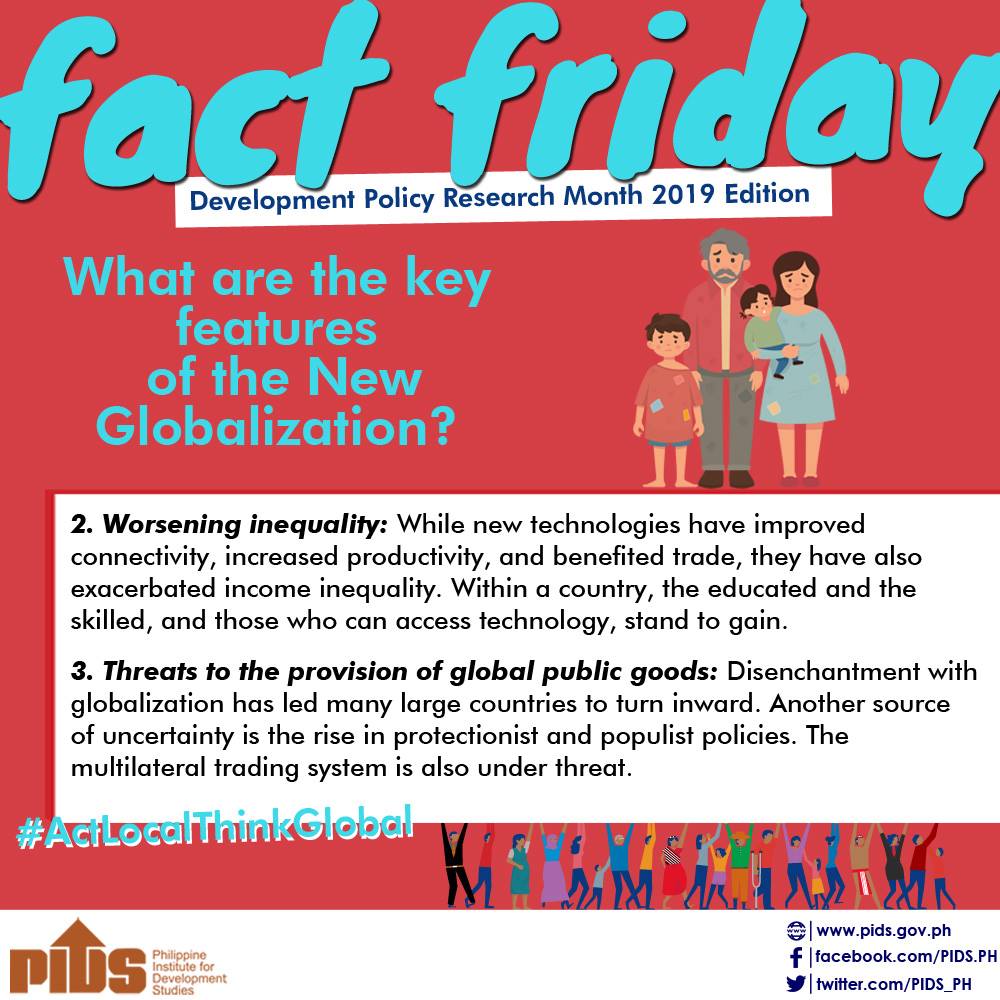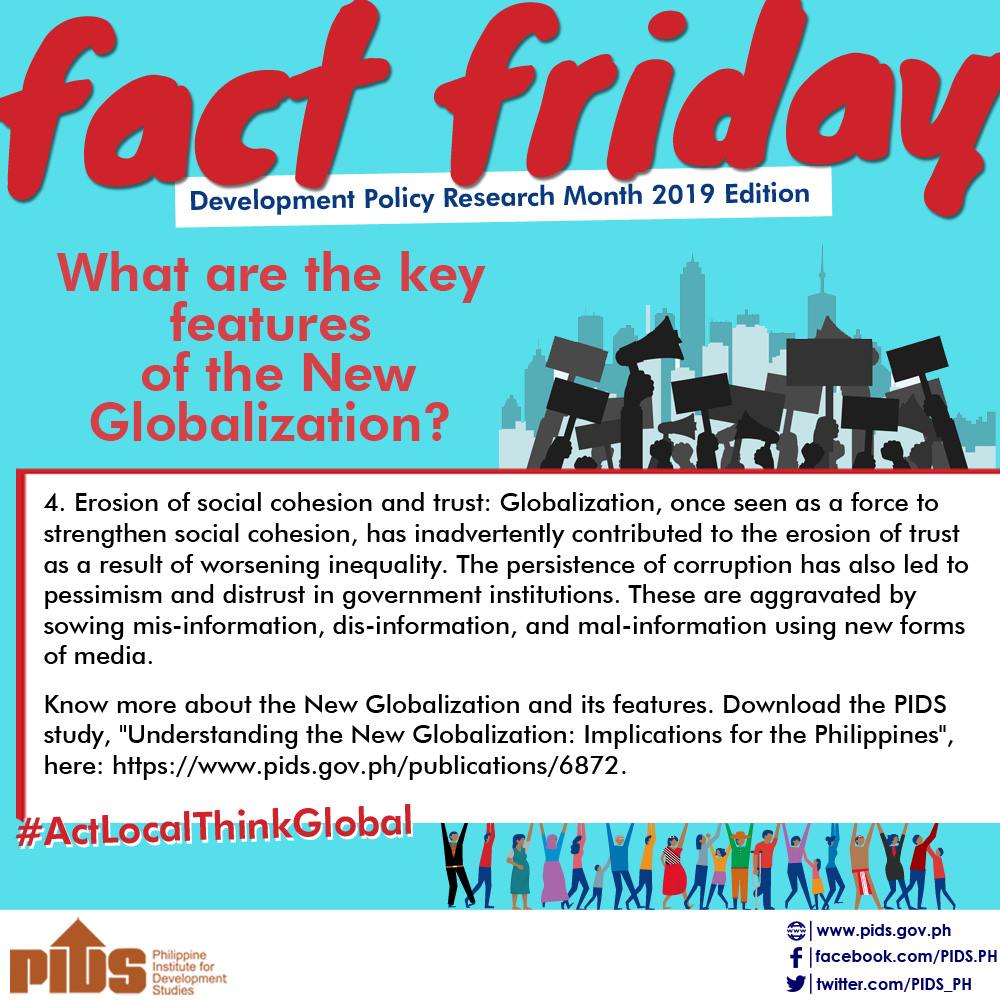Having trouble reading this email? View it in your browser. |
|||||
 |
|||||
|
|||||
RESEARCH PAPER SERIES
This study assesses the likelihood of achieving the employment and entrepreneurship objectives of the program by examining the experience of Grade 12 Senior High School (SHS) graduating students and the views of firms about the labor market prospects of the SHS graduates. The study revealed that despite identifying employment and entrepreneurship as a rationale for the program, three quarters of the Grade 12 students plan to proceed to higher education. This proportion is true even for those in the Technical-Vocational-Livelihood track. Among the highlights of the focus group discussion with students is the revelation that they are not very confident that they will get a job after graduating from SHS. Even those who passed the National Certification assessments still believe that the firms will prefer hiring college graduates over them. Meanwhile, most of the firms lack in-depth knowledge of the SHS program. While it may be too early to gauge the performance of the SHS program, particularly the performance of its graduates in the labor market, the study has uncovered areas for improving the implementation of the program to boost the chances of achieving its objectives, particularly the employment and entrepreneurship capabilities of SHS graduates. Click here to download the research paper.
Philippine Journal of Development (PJD) Vol. 44, No. 1 This volume of the Philippine Journal of Development revisits some of the government policies specifically designed for those in the margins, namely, the farmers, rural poor, and the children. The first article tackles the varied prices of urea fertilizer across the regions of the Philippines while the second article presents the chronic food poverty in rural areas and its association with weather condition in the area. Completing this volume are studies on social protection and healthcare coverage among the Filipino children and the impact of foreign linkages on innovation activity of manufacturing firms in CALABARZON. Click here to download the publication.
DEVELOPMENT RESEARCH NEWS DRN 2019 Vol. 37 No. 3: Corruption, IP issues beset PH mining Good governance and good policies work hand in hand. Lack of good governance can hinder the successful implementation of good policies while the absence of the latter can make the former ineffective and inefficient. This year’s Development Research News (DRN) features articles focusing on governance and policy issues faced by the mining, forestry, agriculture, health, and education sectors. Completing this issue are articles on poverty risk management, an infographic on valuation of women’s work in the context of the Philippines, and a piece reporting on this year’s Development Policy Research Month theme. Also in this quarter’s DRN, the PIDS conveys its deepest sympathies to the family of the late Dr. Ponciano Intal Jr., a well-loved administrator and one of the brains behind PIDS research studies on international trade, regional integration, and ASEAN. Click here to download the newsletter.
DISCUSSION PAPERS DP 2019-09: Silver Linings for the Elderly in the Philippines: Policies and Programs The Philippines is identified as one of the countries with an ageing population, as the proportion of persons aged 60 and above is at 7.4 percent in 2015 and is projected to increase to 15.9 percent by 2045. Senior citizens tend to have higher prevalence of various medical diseases and comorbidities. Moreover, they are less economically active compared to younger age groups. Thus, this projected increase in the number of senior citizens entails greater support needed in terms of health care and income security for the elderly. In response to this, the government has been enacting various legislations and implementing various social protection programs for senior citizens. Among these are the mandatory coverage of senior citizens to PhilHealth and provision of retirement benefits and pension through the Social Security System and the Government Service Insurance System, for senior citizens previously involved in the formal economy, or through the social pension program for indigent senior citizens. Click here to download the paper.
DP 2019-08: Understanding the New Globalization: Implications for the Philippines The world economy has undergone at least three waves of globalization and is currently on the fourth wave. The Philippines has been reaping the growth dividend from the third wave of globalization: functioning democracy, monetary stability, trade liberalization, and related market reforms. In a fast-changing world, the strategies forged previously may need a fundamental rethinking to enable the country to survive, and thrive, in an era of global transition. There are four key features of the new globalization: economic restructuring; worsening global inequality; threats to international cooperation in providing global public goods; and weakening of traditional ties of social cohesion and trust. The paper develops a set of recommendations on how to navigate the new globalization for policymakers and other stakeholders in the Philippines. Navigating the new globalization will be difficult, but not impossible. Despite the drift towards mistrust and isolation, the paper argues for a renewed drive towards international cooperation, collaboration among public and private organizations, and adaptive policies in dealing with rapid economic and social change. Click here to download the paper. |
September 19, 2019, 9AM–6PM -----------------------------------------
We are facing a new kind of globalization—one that is characterized by volatility, uncertainty, complexity, and ambiguity, given the complex, interrelated challenges it brings. Know the features of this new
CLICK HERE for the guidelines in the preparation of articles. Submissions and inquiries may be sent to PJD@mail.pids.gov.ph. |
||||
Embracing globalization does not mean giving up the territorial and other fundamental rights of the Philippines.
In one way or another, doing day-to-day activities as well as complex and more challenging tasks has been significantly easier because of technological developments over the years.
The world is entering a new phase of globalization that is full of complex and interrelated challenges which, if not managed well, can result in the slowdown of the global economy.
The world has already entered a new phase of globalization and not everyone understands its implications.
The Philippine Institute for Development Studies (PIDS), Mindanao Development Authority (MinDA), and Mindanao State University in General Santos City are joining forces to conduct a policy research forum on September 10 as part of the celebration of the 17th Development Policy Research Month (DPRM). The forum will discuss the challenges of the New Globalization and its potential impacts on Mindanao. The theme of this year's Fifth Mindanao Policy Research Forum (MPRF) is "Navigating the Challenges of the New Globalization: Local Actions for Mindanao" to highlight the various challenges of the New Globalization that can affect the island. READ MORE
In the face of global challenges brought about by the New Globalization, Filipinos must learn how to navigate it through local actions. This is the overarching message of this year's Development Policy Research Month (DPRM) led by state think tank Philippine Institute for Development Studies (PIDS). Pursuant to Presidential Proclamation 247 signed in September 2002, the DPRM is celebrated every September to promote nationwide awareness of the importance of policy research in crafting evidence-based policies, plans, and programs. READ MORE | |||||
Challenges in Irrigation Development and Management in the Philippines Irrigation is essential for many crops, especially for rice, the country’s primary staple. The government, through the National Irrigation Administration, undertakes the planning, construction, operation and maintenance, and rehabilitation of national irrigation systems. Despite huge irrigation investments, however, the performance of the irrigation sector in terms of cropping intensity and actual irrigated areas has barely improved. This infographic provides a background of the Philippine irrigation sector, its performance, and the technical and institutional issues affecting the irrigation systems in the country. It also puts forward some recommendations on how to address these issues. This infographic is based on the following PIDS studies: PIDS Policy Note 2019-09 titled Strengthening institutional links for irrigation water governance written by Agnes C. Rola, PIDS consultant To view in actual size, visit the PIDS website or the PIDS Facebook page.
Every Friday, PIDS releases nuggets of research results culled from different PIDS studies. Here are the latest #PIDSFactFriday issues. Like us on Facebook for more #PIDSFactFriday issues. |
|||||
Need help? Have feedback? Feel free to contact us. © 2018 Philippine Institute for Development Studies.
|
|||||


.jpg)
